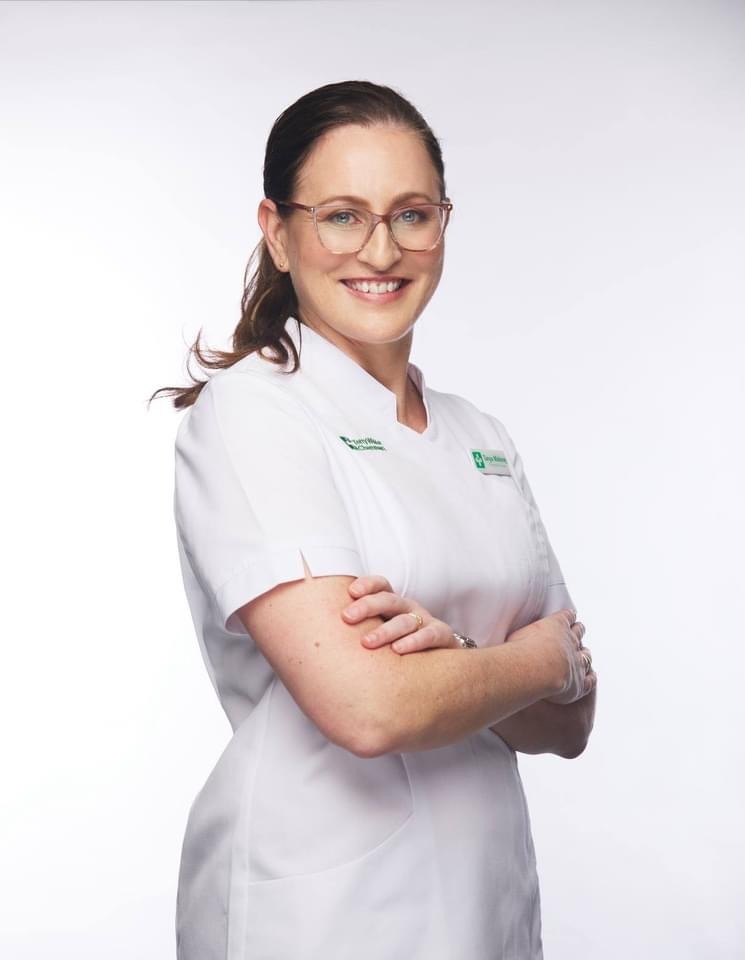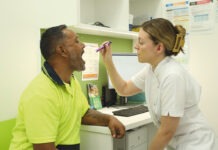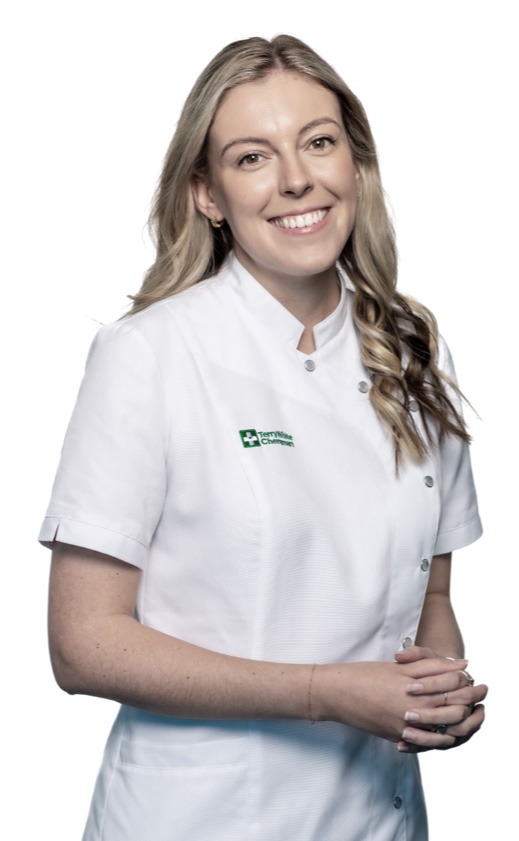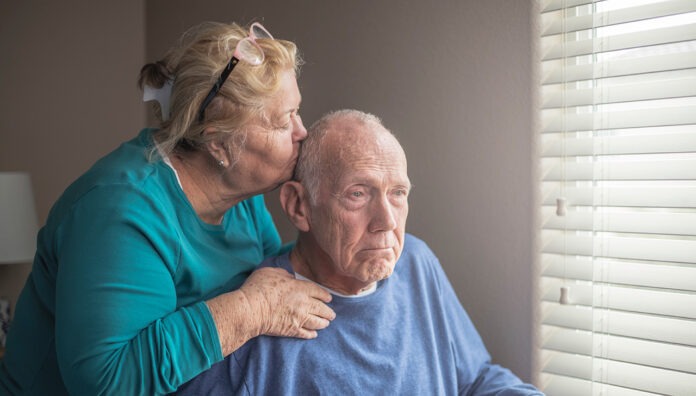Dedicated palliative care training for pharmacists is not commonplace. This PSA-developed course aims to change that.
It can be difficult to tell from a prescription that a patient is receiving palliative care, said Tanya Maloney MPS, a community pharmacist in Coffs Harbour, NSW.

‘What we lack in pharmacy is training on how to approach those difficult conversations in the right way so we can ask them a few questions to determine that,’ she said. ‘We’re often a bit nervous about saying the wrong thing.’
Though passionate about palliative care, Ms Maloney and her team have had to learn on the job.
‘We haven’t had any extra training and want to know how we can contribute more.’
This is a common issue through the profession, with a lack in palliative care education tailored specifically to pharmacists, leading to a knowledge gap, said PSA Senior Pharmacist (Consulting and Program Delivery) Megan Tremlett MPS – who has managed a number of palliative care projects through Primary Health Networks and at a state level in recent years.
‘As pharmacists, we don’t learn a lot about palliative care in our undergraduate course. And the majority of pharmacists haven’t done any extra palliative care education since their university days.’
To address this, PSA launched the ASPIRE Palliative Care Foundation Training Program on 13 May. The free, CPD-accredited course – supported by Palliative Care Australia and funded under the National Palliative Care Grants Program – upskills pharmacists regardless of practice setting.
‘The training program has been created with extensive stakeholder consultation to provide pharmacists with a thorough introduction to palliative care across the eight modules’ Ms Tremlett said.
Rather than training pharmacists to specialise in palliative care, the training program is intended to lift the baseline knowledge of the profession, said Leah Robinson, Project Manager at PSA, who worked on the development of the program with Ms Tremlett.
‘It’s about understanding the different settings and phases of palliative care and at which points pharmacists can provide practical support to help families, patients and healthcare professionals in supporting palliative care.’
A foundational understanding of palliative and end-of-life care across the health workforce is essential to meeting community needs, said Camilla Rowland, CEO of Palliative Care Australia.
‘Supporting people to live, and die well, means building palliative care capability across the entire health system. That includes pharmacists, often among the first healthcare professional patients and carers turn to for advice.’
Learning about symptom management
The ASPIRE training program has a module dedicated to symptoms and the trajectory of people living with life-limiting illness.
Under a subsequent symptom management module, pharmacists can access resources and references for pharmacological management of the symptoms associated with dying that covers:
- Pharmaceutical Benefits Scheme (PBS) and non-PBS medicines
- Special Access Scheme medications
- Medicines used off-label.
Experts, from pharmacists to prescribers, guide learners on handling sensitive conversations with patients and families – linking to Safer Care Victoria resources for monitoring and managing adverse effects, especially with continuous subcutaneous infusions.
‘We point pharmacists to a range of resources to support them with understanding medicines compatibilities in subcutaneous infusion devices and the adverse effects that might be expected,’ Ms Tremlett said.
As illness progresses, medication regimens often grow more complex.
‘Pharmacists need to be able to step in and make recommendations around those [medicines] that could potentially be weaned or stopped to reduce that burden and the chance of side effects and interactions,’ Ms Tremlett said.
The training program also helps pharmacists with information, tools and resources for conversions of medicines and different formulations, including switching from some or all of their opioids, to a replacement opioid delivered by another route, Ms Robinson said.
‘It’s also [around] practical things pharmacists can offer such as providing a list of current medicines, home medication review, staged supply, support with prescription management, home delivery or flexibility around dose administration aids to help manage those medicines and the complexity of the changes they go through during the different phases of palliative care,’ Ms Robinson said.
Developing interdisciplinary care skills
At the moment, Ms Maloney feels as though community pharmacy is a missing piece in palliative care that’s uncertain where it fits.
‘We want to be able to fit into that wider team of their health carers so we can look at the holistic care and goals of the person and provide them with more than just medication,’ she said.
ASPIRE emphasises collaboration with GPs, specialist palliative care teams, community nurses, paramedics and residential aged care staff.
‘In the module that’s dedicated to interdisciplinary palliative care, pharmacists learn the broad range of people who are involved in palliative care, and some they might not expect – from death doulas to chaplains, music therapists and diversional therapists,’ Ms Tremlett said.
Focusing on patient-centred care
Once pharmacists identify a palliative care patient, they need knowledge and skills to determine how best to help at each stage, Ms Maloney said.
‘How do we know how to help them in all these different stages that they’re going to go through?’
Pharmacists may think they know what’s best for a patient based on their clinical background, Ms Tremlett said.
‘But at the end of the day, what’s important to the person or the patient is the single most important thing.’
‘ASPIRE reminds pharmacists to be mindful of their own biases to meet the person where they are and help them achieve their goals of care, which might change over time as their condition progresses,’ Ms Robinson added.
The patient-centred care module also highlights Australia’s cultural diversity – including First Nations peoples, migrants and those from non-English speaking backgrounds.
‘There is no such thing as a consistent cultural need in palliative care,’ Ms Tremlett said.
‘It’s very different within cultures, between cultures and within communities, so pharmacists need to be able to adapt the care and services they provide without making assumptions.’
The need for translation services, what’s deemed an inappropriate conversation or who is the next of kin or carer can vary from person to person, Ms Robinson said.
‘It’s important to be mindful of how and what to communicate to align with those goals of care.’
Helping families through grief and bereavement
Being confident talking about death is something many pharmacists struggle with, Ms Maloney said.
‘You might prompt them a little bit, and they do get upset, and that’s often what puts us off,’ she said. ‘But it’s not necessarily a bad thing as they’re getting to open up and talk to you.’
The final ASPIRE module on grief, bereavement and self-care aims to normalise conversations about death and dying. Being comfortable enough to embed those conversations in day-to-day practice – including supporting people after their loved one has died – is crucial, Ms Tremlett said.
‘It’s really important for pharmacists to be prepared to still speak about the person who’s died, if that’s what the person wants to do, and to recognise that grieving is very normal, and there’s no right or wrong way to grieve.’
Pharmacists also need to be able to recognise prolonged grief and know when referrals for extra support are needed.
‘If the pharmacist has the knowledge and skills to refer that person on for some extra help in the grieving process, that’s really impactful,’ she said.
Throughout the palliative care process, it’s crucial for pharmacists to look after themselves and to know when to check in on their colleagues too.
‘When we’re constantly supporting people who are unwell … it’s very natural for pharmacists to feel a burden of care,’ Ms Tremlett said.
‘Learning to recognise when you or your colleagues might be feeling a little overwhelmed, need extra support or to engage in self-care activities is really important.
Embedding the training into practice
Now that the ASPIRE training program is available, Ms Maloney wants all her pharmacists to complete it to lift their confidence and knowledge in palliative care.
‘As part of that, there’s all the resources you can print out and revisit,’ she said.
‘They will be active documents that become part of our internal processes rather than training you just do and forget.’
The experience of supporting palliative care patients also builds trust and loyalty among family members and carers.
‘You get to know them on a different level and see them when they’re vulnerable,’ Ms Maloney said. ‘That rapport you can build up in that time by being there for them definitely builds that lifetime customer for the future.’




 Tahnee Simpson[/caption]
Tahnee Simpson[/caption]
 Nicolette Ellis MPS[/caption]
Nicolette Ellis MPS[/caption]


 Ruth Nona[/caption]
Ruth Nona[/caption]

 Kate Gunthorpe MPS[/caption]
Kate Gunthorpe MPS[/caption]
 Madison Low[/caption]
Madison Low[/caption]





